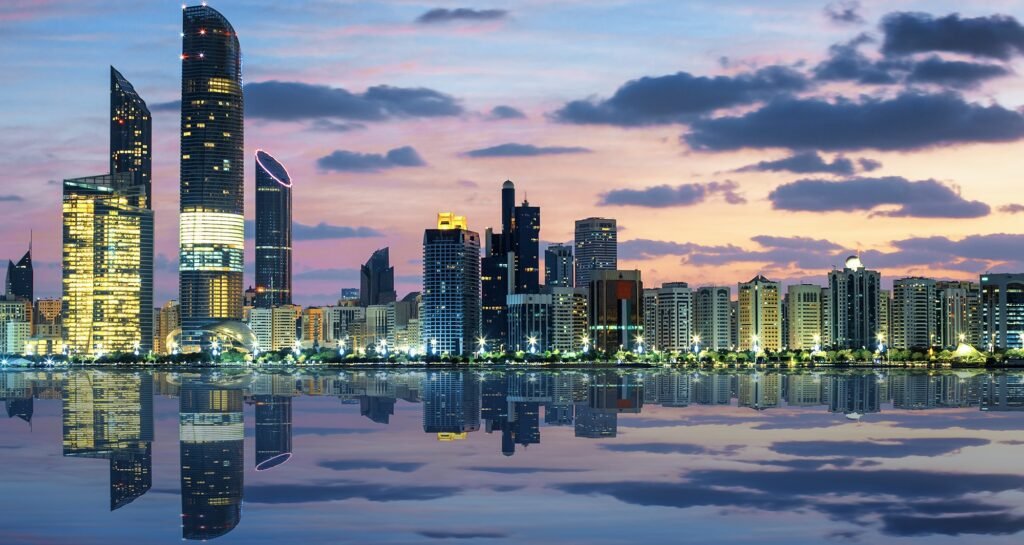Abu Dhabi is making headlines with its bold move towards sustainable real estate. With eco-friendly building practices becoming the new norm, the city is setting an example for the region and the world. From energy-efficient technologies to green construction materials, here’s how Abu Dhabi is reshaping its skyline with sustainability in mind.
The Push for Sustainability
The UAE has long been committed to sustainability as part of its Vision 2030 goals. In Abu Dhabi, this means ensuring that the rapid urban development takes place without compromising the environment. Government-led initiatives and private sector involvement have accelerated the shift towards greener real estate.
One of the key contributors is the Estidama Pearl Rating System, which mandates sustainable building practices. Developed by the Abu Dhabi Urban Planning Council, it ensures that new developments meet energy, water, and waste reduction standards. This system rates buildings on a scale of one to five pearls, with the higher ratings indicating exceptional sustainability performance.

Eco-Friendly Construction Practices
Developers are increasingly adopting green building materials like recycled steel, sustainable concrete, and locally sourced materials. These materials not only reduce carbon footprints but also enhance energy efficiency. Additionally, many builders are choosing materials with higher thermal insulation properties to reduce the need for artificial cooling.

Innovative construction methods like modular building are also gaining traction. By assembling components off-site and then putting them together on-site, waste is minimized, and energy consumption is reduced. These prefabricated modules require less material and generate fewer emissions, contributing to a cleaner construction process.
Renewable Energy Integration
Renewable energy is at the heart of Abu Dhabi’s sustainability drive. Many new real estate projects are incorporating solar panels and other renewable energy systems. The use of photovoltaic (PV) panels on rooftops has become a common practice, significantly reducing reliance on conventional electricity.
In addition, developments are integrating smart grids that optimize energy distribution, reducing overall consumption. Buildings are also being equipped with energy management systems that monitor and control energy usage in real time, ensuring minimal wastage.
The city is also exploring the potential of district cooling systems. These systems provide large-scale cooling solutions that consume far less energy than traditional air conditioning. By using chilled water distributed through insulated pipes, district cooling systems can lower energy consumption by up to 50%.
Water Conservation Efforts

Water scarcity is a critical challenge in the region. Abu Dhabi developers are addressing this by using greywater recycling systems that reuse wastewater for landscaping and other non-potable applications. These systems treat and repurpose water from sinks, showers, and laundry machines, significantly reducing the demand for freshwater.
Advanced irrigation systems equipped with sensors ensure that landscapes receive only the necessary amount of water. Additionally, the use of drought-resistant native plants has become popular in sustainable landscaping. These plants require less water and thrive in the region’s arid climate, contributing to efficient water management.
Green Certifications and Standards
To further encourage sustainability, many developers aim to achieve green building certifications. Beyond Estidama, international certifications like LEED (Leadership in Energy and Environmental Design) are also recognized in Abu Dhabi. LEED-certified buildings meet rigorous sustainability benchmarks in areas like energy performance, water usage, and waste management.
Green certifications not only contribute to a building’s environmental impact but also enhance its market value. Sustainable properties often attract eco-conscious investors and tenants, making them a smart financial choice in the long term.
Community Engagement and Awareness
Abu Dhabi is also fostering a culture of sustainability through community engagement. Residents are encouraged to participate in recycling programs, use energy-efficient appliances, and adopt responsible consumption habits. Developers are promoting green living by offering incentives such as reduced utility bills for residents who reduce their energy and water consumption.
Developments with green public spaces and pedestrian-friendly designs are promoting healthier and more sustainable lifestyles. Parks, cycling tracks, and shaded walkways not only encourage physical activity but also reduce vehicle emissions, improving air quality across the city.
Prominent Sustainable Projects in Abu Dhabi
Several notable projects are leading the sustainability charge:
- Masdar City: One of the world’s most sustainable urban developments, Masdar City is a pioneer in renewable energy and eco-friendly construction. Powered by solar energy and built with sustainable materials, it offers a carbon-neutral living experience.
- Zayed City: This mega-project emphasizes sustainability with solar-powered infrastructure, efficient waste management, and extensive green spaces. Designed with environmental responsibility in mind, Zayed City represents the future of urban living.
- Jubail Island: Designed as an eco-conscious residential community, Jubail Island features energy-efficient villas and preserves its natural mangroves. The project aims to promote biodiversity while maintaining modern luxury.
- Al Reem Island: Al Reem Island is implementing smart energy management systems and using solar power to reduce its carbon footprint. Its sustainable waterfront developments are designed to minimize environmental impact while maximizing energy efficiency.
Economic Benefits of Sustainable Real Estate
Investing in sustainable real estate is not only beneficial for the environment but also for the economy. Green buildings often have lower operational costs due to energy and water savings. Additionally, sustainable properties tend to experience increased asset value and higher occupancy rates.
The government has also introduced incentives for developers who incorporate sustainable practices, such as fast-track approval processes and financial rewards. These incentives are encouraging more companies to embrace eco-friendly designs, further driving the growth of green real estate.
The Future of Sustainable Real Estate
With continuous investments and innovations, Abu Dhabi’s sustainable real estate sector is set to grow further. As the government strengthens its commitment to reducing carbon emissions, future projects will likely set even higher benchmarks for sustainability.
Incorporating cutting-edge technologies like artificial intelligence (AI) and machine learning for energy management will become increasingly common. These systems can analyze data to predict and reduce energy consumption, further enhancing building efficiency.
For investors, residents, and environmental advocates, the shift towards green real estate is not just a trend — it’s a transformational movement that’s shaping the city’s future.
Also read: Dubai’s Commercial Property Rush: What’s Driving the Surge?













